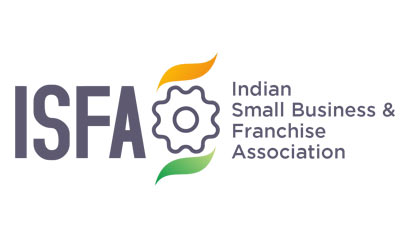To get access to over 10000+ Franchise Business Opportunities.
Network with the growing Business Community to get expert interventions to let you learn to Grow & Expand your Business with Franchising.
Are you facing issues of stability in your franchise system? Are your franchise service standards below par? Is manpower retention at the franchise end becoming a mammoth task for your company? Read on to know how companies can address some of the most co
THERE is little doubt in the fact that the franchise business model has several advantages over any other model. But it would be naïve to think that the model does not pose challenges of its own. There are many internal as well as external challenges faced by companies on a regular basis that have hampered their growth-related objectives. Issues like stability of the franchise system, problems pertaining to manpower retention at the franchise end, below par franchise service standards and a host of other issues pose challenges that must be overcome to fulfil a company's aspirations and goals. What are some of these challenges a company faces and how can it address them?
Deviation from company standards
The gap in the service level between the franchisor operated i.e. company owned and franchisee owned should ideally be ‘zero’ or at least minimum.
However, it has been observed that both franchisees as well as franchisors do not adhere to this norm. The situation comes to the forefront when franchisors show leniency in handling situations where the franchisee is unable to adhere to the established level of conformity for training, resource allocation or any other such quality standards not being appropriately met. The company must thus aim to help the franchisee comply with the standards and treat such complains/queries with urgency. Compliance in setting up the processes as well as implementation of these processes is a must for a healthy franchise company.
In majority of the cases when the company establishes its hold in the market the services start to decline. Here the emphasis shifts from quality to quantity. It would be recommended for franchise businesses to adapt to the newly recognised Lean Six Sigma process, which is applicable in every business even more in the franchise business model. The Six Sigma approach has already been adopted in the franchising industry in developed markets worldwide, across all sectors, to enhance productivity and quality performance and to make the process immune to quality variations.
Franchising via independent business vertical
Most successful franchisors consider the franchise business vertical as independent. However, when it comes to big corporate players, franchise business is one of the revenue units and not considered as an independent business vertical. It has not been an uncommon sight to find lack of structured teams even in the biggest of organisations. Due to this lack of separate identity for franchise operated business verticals, many big brands, though successful as brands, are not profitable. The solution is to consider the franchise operated business vertical as an independent business unit regardless of the brand value.
Long term vision - need of the hour
In the franchise business model, we feel that there are only three channel partners: the franchisor, franchisee and customer (primarily the end user). Therefore, a long term vision for success should be built on a healthy franchisor franchisee relationship. Thus, we feel that the franchisor should have a long term vision for making the franchise business successful rather than expecting it from the franchisee.
Supply chain issues
Managing the supply of products for one or two franchisees might be easy for the franchisor but the supervision gets complicated with the existence of numerous franchisees and even more with the existence of a large product profile.
Franchisee staff recruitment & retention
Even though franchisors give the brand name and required business operations expertise, unless the rightly skilled manpower is appointed in the franchisee business, the chances of franchisee to be successful are little.
Thus, staff retaining strategies must be employed by the franchisor at the grassroots level by way of 'franchisee employment engagement programmes' to create and restore employee's loyalties with the company which will automatically ensure better services at the franchisee end.
Tuhina Bhatt Reen is an Associate Vice President, Francorp


Business Opportunities
Browse By Investment Range
Browse By States
Popular Cities
We value your privacy.
You can unsubscribe anytime















